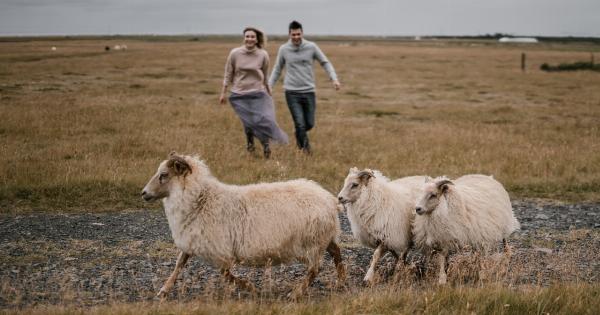In recent years, veganism has become one of the most popular trends in the health and wellness world.
With more and more people realizing the positive impact of a vegan diet on their overall health, the environment, and animals, it’s no wonder why veganism has become the ultimate trend.
What is veganism?
Veganism is a lifestyle that excludes all forms of animal exploitation and cruelty, including not consuming any animal products like meat, dairy, eggs, and honey.
Vegans also do not use any animal-derived products like leather, wool, and silk and avoid products tested on animals.
Health Benefits of a Vegan Diet
Many studies have shown the health benefits of a vegan diet. One of the main benefits is weight loss. As a vegan, you consume fewer calories because plant-based foods are lower in fat and high in fiber, which makes you feel full for longer periods.
As a result, you can lose weight without feeling hungry or deprived.
Vegan diets are also known to reduce the risk of chronic diseases like heart disease, type 2 diabetes, and some cancers. This is because plant-based foods are rich in nutrients, antioxidants, and phytochemicals that protect against these diseases.
For example, fruits, vegetables, whole grains, and nuts and seeds are rich in fiber, vitamins, and minerals that support good health.
Environmental Benefits of Veganism
Veganism has an enormous positive impact on the environment. Animal agriculture is one of the world’s leading causes of deforestation, water pollution, and greenhouse gas emissions.
In contrast, a plant-based diet requires less land, water, and energy to produce, and it’s a sustainable way to feed the world’s growing population.
Animal Welfare and Veganism
Veganism goes beyond personal health and environmental benefits. It’s also a compassionate way of living that promotes animal welfare. By not consuming animal products, vegans reduce the demand for animal agriculture and animal testing.
They also promote cruelty-free products and support animal sanctuaries and organizations that rescue and care for animals in need.
Getting Started with Veganism
For those who are interested in going vegan, the first step is to learn more about it. There are many resources available online and in print that provide information on how to transition to a vegan lifestyle.
It’s essential to know what to eat, how to prepare vegan meals, and where to find vegan-friendly products.
Some tips for starting a vegan diet are:.
- Gradually replace meat and dairy products with plant-based alternatives
- Experiment with new recipes and ingredients
- Stock up on vegan staples like fruits, vegetables, grains, legumes, nuts, and seeds
- Plan ahead and bring vegan snacks and meals when traveling or eating out
- Join vegan communities and connect with other vegans for support and advice
Veganism and Social Justice
Veganism is not only about personal health, animal welfare, and environmental sustainability. It’s also about promoting social justice and equality.
The vegan movement advocates for human rights, fair labor practices, and economic justice, and it recognizes the interconnectedness of all forms of oppression and exploitation.
By choosing to eat vegan, we support a world that is compassionate, just, and sustainable, where all living beings are treated with dignity and respect.
In Conclusion
Going vegan is not just a diet change, it’s a lifestyle change that has numerous benefits for our health, environment, animals, and social justice. Veganism is more than a trend; it’s a movement that promotes a better world for everyone.



























